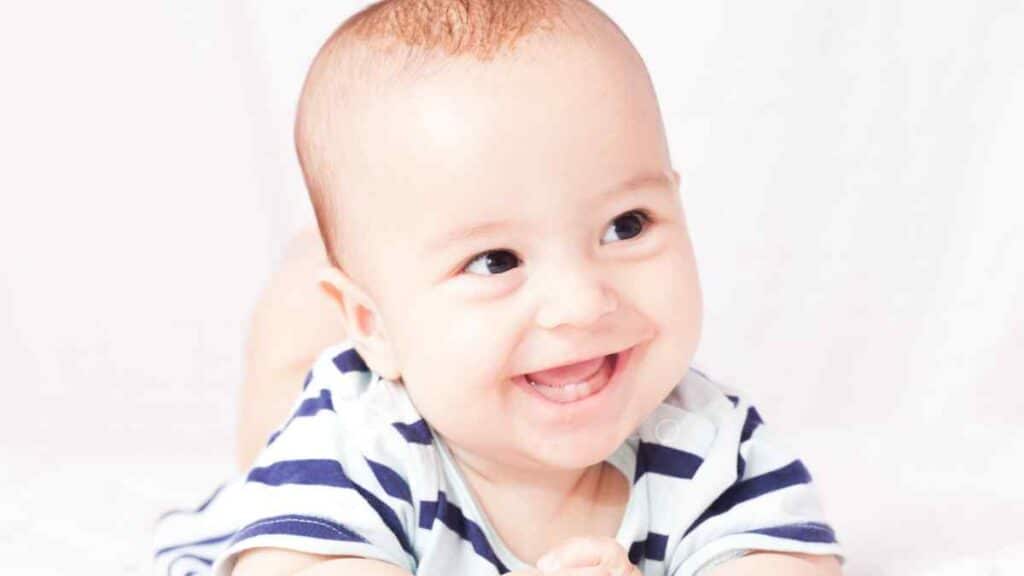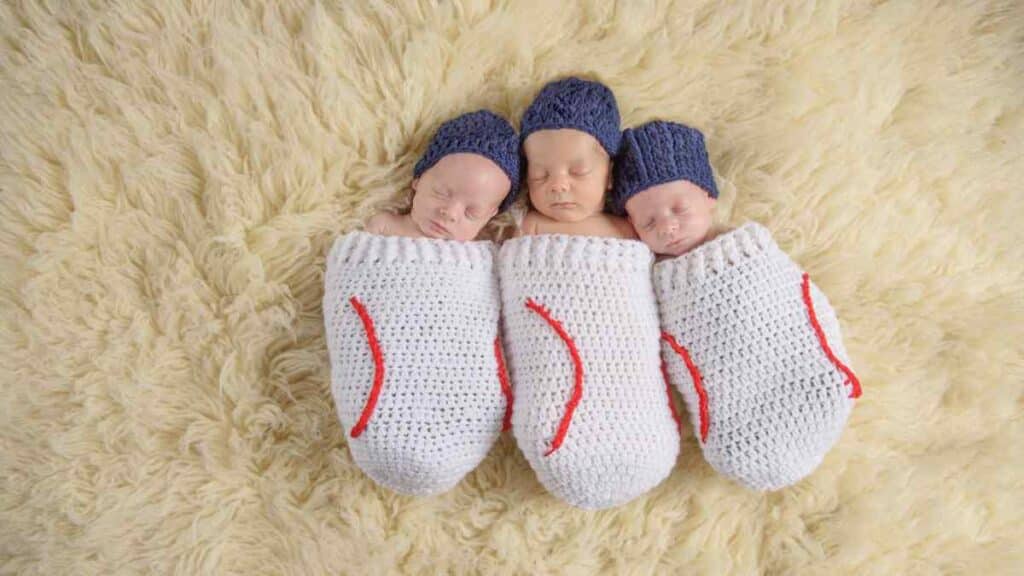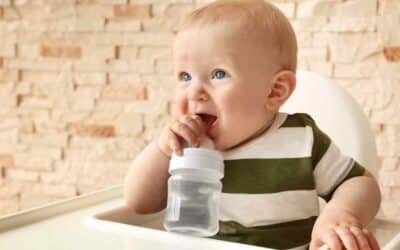Choosing the right diapers for your baby can be daunting for new parents, especially with the various options available today. Among the most debated diaper types are cloth and disposable diapers. While each option has pros and cons, choosing the right one can significantly impact your baby’s comfort, budget, and environment.
This article will compare the features and benefits of cloth and disposable diapers, discuss the factors to consider when choosing and provide recommendations for different scenarios. By the end of this article, you’ll better understand which diaper type aligns with your priorities and needs and can make a more informed decision for your baby’s diapering needs.

What is Cloth Diapers?
Cloth diapers are a popular alternative to disposable diapers. Here are some details on the different types of cloth diapers and their pros and cons:
Types and Materials
It comes in various types, including pre-fold, fitted, all-in-one, and covers. Each type has its unique benefits and features. Materials used to make cloth diapers include cotton, bamboo, and hemp. Additionally, some cloth diapers come with snap or Velcro closures for easy fastening.
Pros and Cons
There are several benefits and drawbacks to using cloth diapers. Here are some:
- Cost: While the initial investment in cloth diapers may be more than disposable diapers, they can be more cost-effective in the long run. This is because they can be reused multiple times and do not need continuous purchases.
- Environmental impact: Cloth diapers are eco-friendly as they do not contribute to landfill waste. They can be washed and reused several times, which reduces the amount of garbage.
- Ease of use and maintenance: Cloth diapers require more effort in terms of cleaning and maintenance. Depending on the type, they should be washed frequently and may require extra steps, such as folding and securing.
- Baby’s skin health: Cloth diapers are made of natural, breathable materials, making them less likely to cause skin irritation or rashes.
Tips for Choosing and Using Cloth Diapers
Factors such as ease of use, fit, and absorbency should be considered when selecting cloth diapers. It is also essential to wash them correctly using fragrance-free detergents to avoid skin irritation. Cloth diaper covers are recommended for added protection against leaks.
Cloth diapers come in different types and materials, each with benefits and drawbacks. While they may require more effort to use and maintain, they offer cost savings, are eco-friendly, and are gentle on a baby’s skin. Proper washing and maintenance are essential for maximizing their benefits and prolonging their lifespan.

Understanding Disposable Diapers
Disposable diapers are an absorbent undergarment designed for babies and young children. They are widely used as a convenient and efficient way to manage a baby’s urine and feces. Here are some critical points about disposable diapers:
1. Convenience and Ease of Use
Disposable diapers are convenient as they can be easily purchased at most stores and online. They are ready to use and do not require any preparation or additional materials. Disposable diapers also come with adhesive tapes or Velcro straps, making them easy to put on and remove.
2. Absorbency and Leak Protection
Disposable diapers are designed to be highly absorbent. They have a layer of superabsorbent polymer within the diaper that quickly absorbs and locks away moisture, keeping the baby’s skin dry. Additionally, disposable diapers have elastic leg cuffs and waistbands that provide a snug fit and help prevent leaks.
3. A Variety of Brands and Options Are Available
Many disposable diaper brands are available in the market, offering different options based on features, materials, and sizes. This variety allows parents to choose the brand that best suits their baby’s needs and preferences. Some brands also provide options for sensitive skin or eco-friendly materials.
4. Environmental Impact and Concerns
Disposable diapers have a significant environmental impact due to the large volume of waste they generate. They are made from multiple layers of plastic, including a waterproof outer layer, and take a long time to decompose. The manufacturing process of disposable diapers also consumes non-renewable resources and generates greenhouse gas emissions. However, some brands have tried reducing their environmental impact by using more sustainable materials or offering diaper recycling programs.
5. Cost Comparison Short-Term vs. Long-Term
Disposable diapers are relatively affordable in the short term, as they can be purchased in smaller quantities and do not require additional expenses for washing or diapering accessories. However, the cost of disposable diapers can add up over time, especially for families with multiple children.
On the other hand, cloth diapers tend to be more cost-effective in the long run. Despite their upfront investment costs for purchasing cloth diapers and additional expenses for washing and drying, cloth diapers can be reused multiple times. This can result in significant savings, particularly for families with more than one child.
When wearing cloth diapers, it is essential to understand the process of laundering cloth diapers. It involves rinsing off soiled diapers, using a prefold diaper or other cloth diaper options, and properly drying cloth diapers. While cloth diapers may require more effort in terms of maintenance, many parents find that they offer benefits such as reduced diaper rashes and are a better option for potty training.
Disposable diapers offer convenience and absorbency, but they have a larger environmental impact and may become more expensive over time. Cloth diapers, on the other hand, require more initial investment and maintenance but can be more cost-effective and environmentally friendly in the long run. The choice between disposable and cloth diapers depends on factors such as personal preferences, cost considerations, and environmental concerns.

Factors to Consider when Choosing
When choosing diapers for your baby, several factors should be taken into consideration to ensure you select the most suitable option for your needs and preferences. Here are some key factors to consider:
Lifestyle and Convenience
One of the critical factors to consider when choosing diapers is your lifestyle and convenience. Disposable diapers are more convenient as they can be easily purchased and thrown away after use, making them ideal for busy parents or those who prefer a hassle-free approach. On the other hand, cloth diapers require more effort in washing and drying but can be more suitable for cloth diapering parents who choose a more environmentally friendly option or have the time for maintenance.
Budget and Affordability
Another vital factor to consider is your budget and affordability. Disposable diapers may seem more affordable initially, as they don’t require an upfront investment like cloth diapers. However, the cost of disposable diapers can accumulate over time, especially if you have multiple children. On the other hand, cloth diapers, such as prefold diapers, have an upfront fee for purchasing them and additional costs for washing and drying, but they can be more cost-effective in the long run.
Environmental Priorities
If environmental sustainability is an important consideration for you, weighing the environmental impact of each diaper option is essential. Disposable diapers generate a significant amount of waste, take a long time to decompose, and contribute to resource consumption and greenhouse gas emissions. Cloth diapers vs disposable diapers, while requiring more water and energy for washing and drying, can be reused multiple times, reducing waste and resource consumption. Choosing eco-friendly disposable diaper brands or considering diaper recycling programs can also be options for reducing environmental impact.
Baby’s Skin Sensitivity and Allergies
The sensitivity of your baby’s skin is another crucial factor. Some babies may have diaper rash, sensitive skin or allergies that react to certain diaper materials or chemicals. Disposable diapers often have a higher chance of containing fragrances, lotions, or additives that may cause discomfort or irritate sensitive skin. On the other hand, cloth diapers made from softer materials like cloth wipes can be more suitable for babies with sensitive skin.
Daycare Requirements and Regulations
If your baby will be attending daycare, it’s essential to consider their diaper requirements and regulations. Some daycare facilities only accept specific diapers, such as disposable ones, for hygiene or convenience. In such cases, you may need to choose disposable diapers for daycare while opting for cloth diapers at home.
Considering factors such as lifestyle, budget, environmental priorities, baby’s skin sensitivity, and daycare requirements will help you decide when choosing the right type of diaper for your baby. Evaluating and prioritizing these factors is essential based on your unique circumstances and preferences.

Comparison Chart of Cloth and Disposable Diaper
Creating a comparison chart can be a helpful way to visually compare the key features and factors of cloth diapers and disposable diapers. The chart can include cost, convenience, environmental impact, baby’s comfort, and laundry requirements. This chart can assist in identifying the pros and cons of each diaper type and make it easier to make an informed decision.
Factors to Prioritize When Making the Choice
When choosing between cloth diapers and disposable diapers, it is essential to prioritize and consider the most critical factors for you and your family. Some factors to prioritize may include:
- Budget: Assess your financial situation and determine what you can afford in the short and long term. Consider the upfront and ongoing expenses such as diaper purchases or laundry costs.
- Convenience: Evaluate your lifestyle and determine which diaper option aligns better with your daily routine. Disposable diapers are typically easier and more convenient to use, while cloth diapers require more effort in terms of washing and maintenance. Dirty diapers are inevitable, so make sure to consider this aspect as well.
- Environmental impact: If reducing your ecological footprint is essential, consider each diaper type’s environmental impact. Cloth diapers are generally more eco-friendly as they can be reused multiple times, while disposable diapers contribute to landfill waste.
- Baby’s comfort and health: Consider any skin sensitivity or allergies your baby may have. Some babies may be more comfortable in cloth diapers as they are made from softer materials, while others may have no issues with disposable diapers.
- Daycare requirements: If your baby will be attending daycare, check their diaper policy. Some daycares only accept certain types of diapers due to hygiene or convenience reasons. Choosing a diaper option that aligns with the daycare’s requirements is essential.
By prioritizing these factors and considering keywords like wear cloth diapers, cloth diapering, and dirty diapers, you can make an informed decision when choosing between cloth and disposable diapers for your baby.
Recommendations Based on Different Scenarios and Situations
Depending on your specific circumstances, here are some recommendations:
- Budget-conscious families: Cloth diapers may be a more cost-effective option in the long run, as they can be reused multiple times. Look for affordable cloth diaper brands or consider purchasing second-hand cloth diapers to save on costs.
- Environmentally conscious families: Cloth diapers are generally considered more eco-friendly as they contribute less waste to landfills. Look for cloth diapers made from sustainable materials and consider using eco-friendly laundry detergents.
- Busy or on-the-go families: Disposable diapers are often more convenient for families with active lifestyles or frequent traveling. Consider choosing a high-quality disposable diaper brand that offers features such as excellent absorbency and leak protection.
- Families with newborns or multiple children: Cloth diapers may benefit families with children, as they can be reused and save on costs over time. Consider the extra laundry load and associated costs when using cloth diapers.
- Families with daycare requirements: If your baby attends daycare and the facility only accepts specific diapers, you may need disposable diapers during daycare hours. However, you can still choose cloth diapers for home use to enjoy their benefits in other situations.
Choosing between cloth and disposable diapers depends on your family’s unique circumstances, priorities, budget, and preferences. It’s crucial to weigh the pros and cons, consider the abovementioned factors, and select the diaper option that best suits your needs.

Conclusion
In conclusion, choosing the right diapers for your baby is a personal decision that should consider factors such as budget, convenience, environmental impact, baby’s comfort and health, and daycare requirements. Cloth diapers offer cost savings, are eco-friendly, and are gentle on a baby’s skin but require more effort in washing and maintenance.
Disposable diapers provide convenience, excellent absorbency, and a wide range of options but contribute to landfill waste and can be more expensive in the long run. By considering your priorities and needs, you can make an informed decision that aligns with your values and ensures your baby’s comfort and well-being.
Did this article help you? Please let us know by commenting below. If you have any questions, please don’t hesitate to ask.



